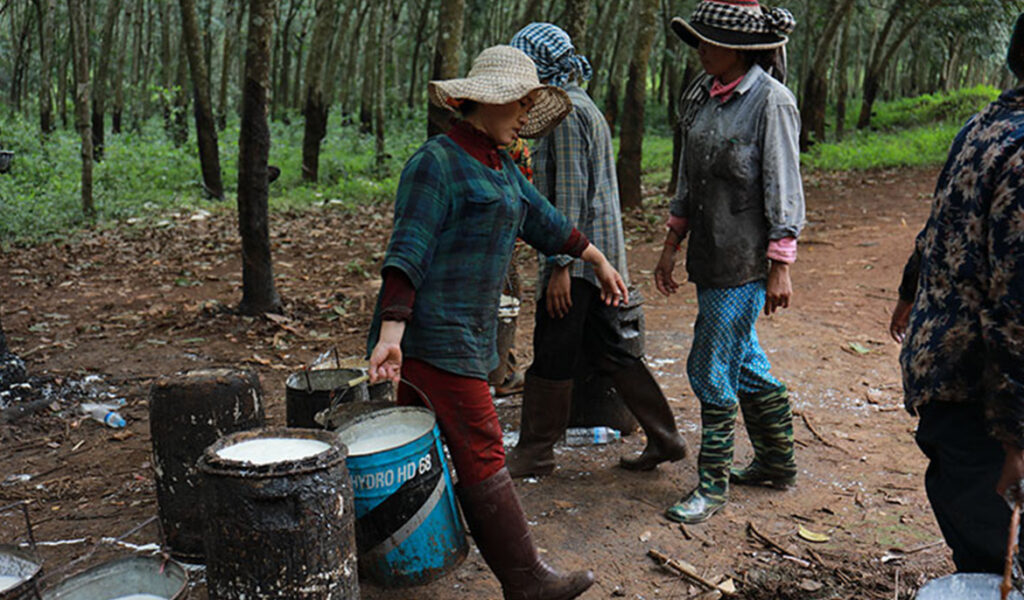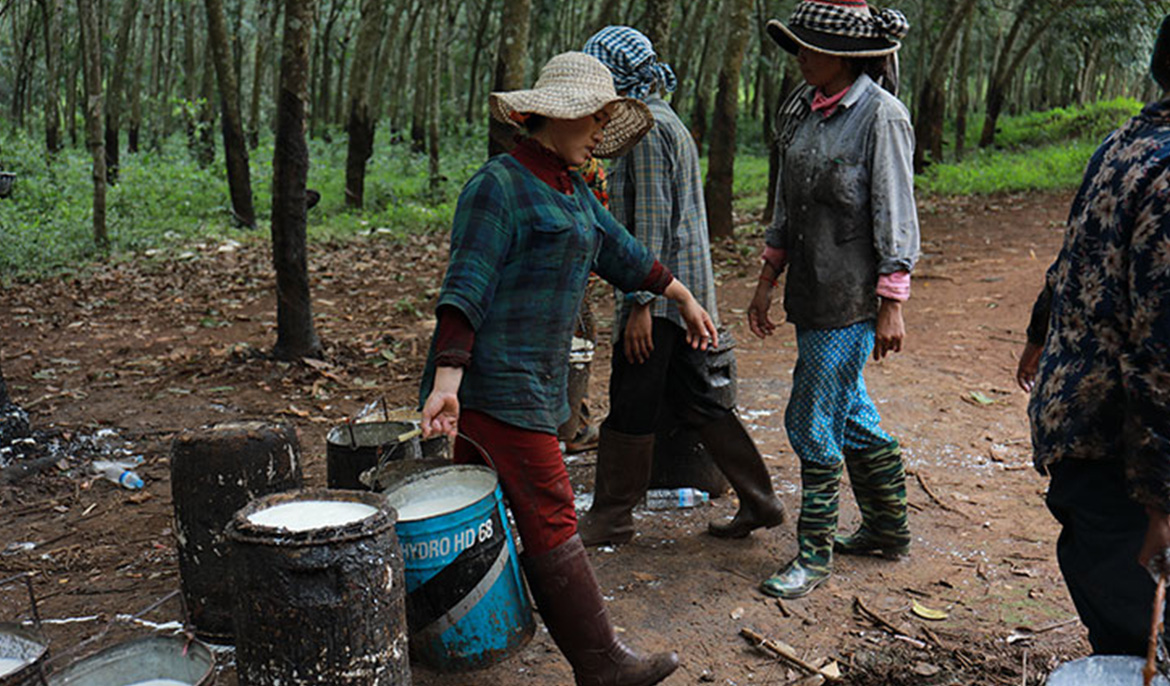Cambodia earned $215 million from the exports of rubber articles in the first two months of this year, an increase of 90 percent compared to the same period last year, according to the latest trade data of the General Department of Customs and Excise (GDCE).
The data indicated that the rising trend in Cambodia’s rubber exports that started in the latter half of 2022 continues into 2024 as well. The exports rose even as there was a fall in the production of natural rubber globally, accompanied by rising prices.
It may be noted that Cambodia earned $919 million from the export of rubber and rubber articles in 2023, recording a growth of 69.6 percent compared to the previous year. The Cambodian rubber market mainly consists of China, Vietnam, Malaysia, Singapore, India, and the EU.
Meanwhile, according to the Kuala Lumpur-based Association of Natural Rubber Producing Countries (ANRPC), the positive change in the price of natural rubber (NR) can largely be attributed to the unexpected tight supply of the commodity, especially as many NR-producing countries enter the seasonal leaf fall period.
Heng Guan, Secretary-General of ANRPC, said in a statement that the impact of factors such as Circular Leaf Fall Disease and adverse climate conditions have also exacerbated the supply challenges, compounded by the reluctance of rubber smallholders to harvest the trees due to protracted low rubber prices.
“This issue persists amidst the growing emphasis on sustainability within the NR industry, with the voices of smallholders often going unheard. As a result, these supply-side dynamics have significantly contributed to the overall improvement in sentiment,” Guan said.
Across the world, Thailand was the biggest producer of natural rubber last year, followed by Indonesia, Vietnam, China, India, Malaysia and Cambodia.
China continued to be the biggest consumer of natural rubber, followed by India, Thailand and Malaysia.
According to experts, the market for natural rubber continues to face major challenges, especially due to the less-than-expected growth of the Chinese economy in the second half of last year. China is the biggest producer of tyres in the world.
Adding to this are the impacts of the prolonged Russia-Ukraine and Israel-Hamas wars and high borrowing costs from interest rate hikes.
According to the Ministry of Agriculture, Forestry and Fisheries, in 2021, Cambodia has more than 400,000 hectares of rubber plantations. Cambodia also has 168 rubber processing factories and handicraft centres in 11 provinces.
Kampong Thom is the leading rubber-producing province in Cambodia with 15.4 of the total crop area, followed by Mondulkiri (8.4 percent) and Stung Treng (4.2 percent), according to the ANRPC data.
While the Kingdom was exporting almost all its natural rubber a few years ago, the launch of several tyre factories, especially by Chinese companies last year, resulted in higher demand internally for Cambodian rubber.
Manufacturers in China, the world’s largest producer and exporter of tyres, started building more factories abroad to meet rebounding market demand following the reopening of the country in the aftermath of Covid-19.
China’s annual tyre output makes up more than half of the global total. But lately, many firms have started building plants abroad, especially in Cambodia, a major producer of rubber, to take advantage of the low production costs.
One of the first to launch in the Kingdom, General Tire Technology (Cambodia) kicked off operations at its $300 million Cambodia factory in Sihanoukville Special Economic Zone (SSEZ) last year. The plant is capable of manufacturing five million semi-steel radial tyres and 900,000 all-steel radial tyres per year.
The plant, located in Cambodia’s coastal province of Preah Sihanouk, is a subsidiary of the Chinese tyre maker from Jiangsu named General Science Technology. Tyres produced at the plant are being mainly exported to the US, Europe, and Brazil.
China’s Doublestar Tire Industrial, also started constructing its $200 million plant in the Special Economic Zone of Kratie with an annual production capacity of 8.5 million radial tyres.
Recently, Cart Tire Co Ltd, the largest Chinese modern tyre manufacturer operating on behalf of Sailun Group launched its first car tyre made in Cambodia known as ‘Sailun’.
According to company sources, the factory in Svay Rieng province can produce up to 35,000 tyres per day in the first phase. They are also planning to build two more factories in Cambodia. khmertimeskh



